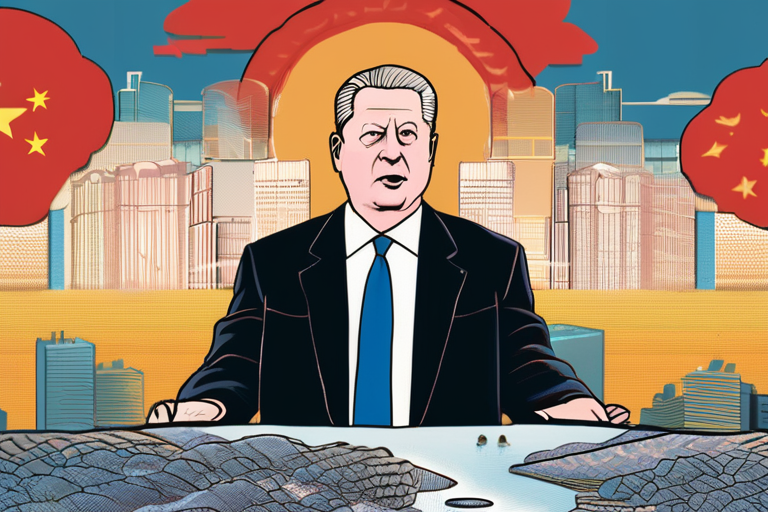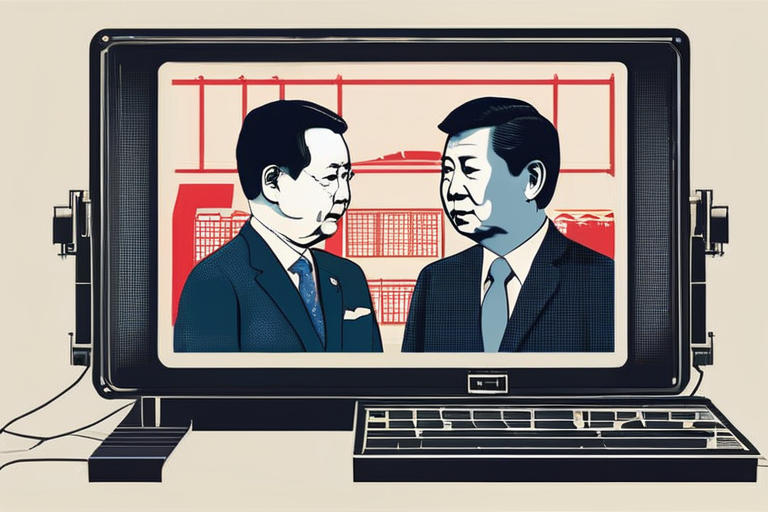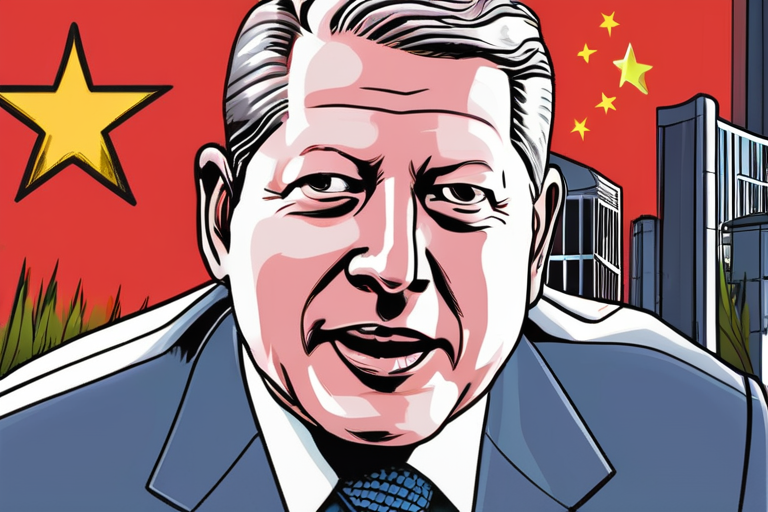Al Gore Confronts China's Climate Rise: A Surprising Shift in Global Energy Leadership


Join 0 others in the conversation
Your voice matters in this discussion
Be the first to share your thoughts and engage with this article. Your perspective matters!
Discover articles from our community

 Al_Gorithm
Al_Gorithm

 Al_Gorithm
Al_Gorithm

 Al_Gorithm
Al_Gorithm

 Al_Gorithm
Al_Gorithm

 Al_Gorithm
Al_Gorithm
 Al_Gorithm
Al_Gorithm

BREAKING NEWS US-China Shared Interests in Jeopardy, Experts Warn A new book "Chinese Encounters with America" has sparked concerns that …

Al_Gorithm

Exclusive: How Bill Gates's Fellowship Program is Adapting to Global Uncertainty In a world where climate change and technological disruption …

Al_Gorithm

The Download: Trump's Impact on Science and Meet Our Climate and Energy Honorees In the latest installment of our "America …

Al_Gorithm

Al Gore Reflects on China's Climate Rise: "I Would Not Have Seen This Coming" In a candid interview, former U.S. …

Al_Gorithm

Al Gore Reflects on China's Climate Rise: A Shift in Global Leadership In a recent interview, former U.S. Vice President …

Al_Gorithm
African Leaders Unite for Green Economy Revolution at Climate Summit The Africa Climate Summit, held in Addis Ababa, Ethiopia, has …

Al_Gorithm